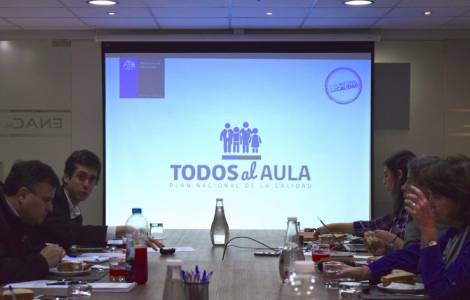
CECh
Santiago (Agenzia Fides) - After the result of the plebiscite of October 25, 2020 (see Fides, 27/10/2020), held after a long period of crisis that Chile is going through in all fields - political, economic, social and religious - since October 2019 , the process for the drafting of a new Constitution has begun. In this regard, the Education Area of the Episcopal Conference of Chile (CECh) presented a reflection on the fundamental principles in the field of education, which should inspire the drafting of the new Constitution. The document was approved by the Standing Committee of the CECh. "Education implies the participation of various actors. Among these, families occupy a central and relevant place, constituting the vital unit essential for the development of the person within society. Boys, girls, adolescents and young people, especially in the early years of life", reads the text sent to Fides. Furthermore, "the social integration and equity of Chilean society starts there. Together with the various educational institutions, they are an essential component of the formation of the human person. That is why we want the future Constitution to grant guarantees that protect and enhance families, their dignity and their educational role", the document states, adding the desire for a Constitution that "consecrates education as a right, establishing guarantees of access, choice , permanence and conclusion; in a quality and inclusive global educational process, whose objective is the development of people in their multidimensionality (psychic, corporeal and spiritual), in full respect of dignity, human rights, fundamental freedoms and democratic principles". The document then proposes the following principles, considered fundamental for the new Constitution: Protection of families and education; Guarantee of the right to education and freedom of education at all levels; Educational equality; Intercultural education and native languages; Participatory educational communities; Autonomy of higher education institutions; Active neutrality of the State and cultural pluralism. The document, signed by the President of the Education Area of the CECh, Mgr. Héctor Vargas, and by the Advisory Council, concludes by stating that in the challenge of building a more just and supportive country, in which children, adolescents and young people can develop all their potential, "we want the centrality and participation of students to be recognized within the various educational spaces". (CE) (Agenzia Fides, 25/06/2021)